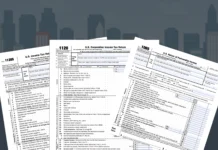The Indian Telecom Regulator, TRAI, has hit out at the tech giant, Facebook Inc (NASDAQ:FB) over the manner in which the company is conducting its campaign for the provision of free internet connectivity to people in different areas. In a sudden twist of events, the regulator has asked Facebook to stop fronting its customers in India and asking them to send messages to the regulator as a way of showing support for the free internet programme that the company intends to launch.
The regulator has said that the millions of messages it receives every day from users of Facebook in India do not make sense at all and that they are likely to have any impact on whether or not the regulator will allow Facebook to launch its free internet programme in the country.
This recent development threatens to further jeopardize the attempts by the tech giant to provide free internet services to different areas of the world. Dubbed as Free Basics, the company intends to help what it describes as millions of people across the third world to access basic internet services free of charge.
The basic idea behind the project is to help people living in remote areas to access basic internet services such as information on health, government services and the weather free of charge. In addition to this, the project seeks to provide users with free access to a number of leading applications such as Wikipedia, Bing and of course, Facebook.
But it is the model of the project that raises many questions. Apart from the position taken by TRAI, there has been growing opposition to the project from other quarters in India. For instance, many seasoned internet users, financiers of internet companies and other related groups in the country have been quite vocal in their opposition to the project.
And to match the energy of the Facebook campaign of asking individuals to lobby the regulatory authority, those opposed to the project have launched a counter-lobbying campaign whose aim is to convince the authority to block the project.
According to Mahesh Murthy, a popular financier of internet-based ventures, the intention of Facebook is to make more poor people waste their time doing the most inane things online at the expense of doing other constructive things as it should be the case.
But in a quick rejoinder, Facebook CEO Mark Zuckerberg, has argued that those who are against the project base their arguments on falsehoods. He has also argued that if the project fails, it will mean that billions of people will miss out on the chance to get into the digital age.
What remains to be seen is the position that TRAI will take and what this will mean for the two sides.









